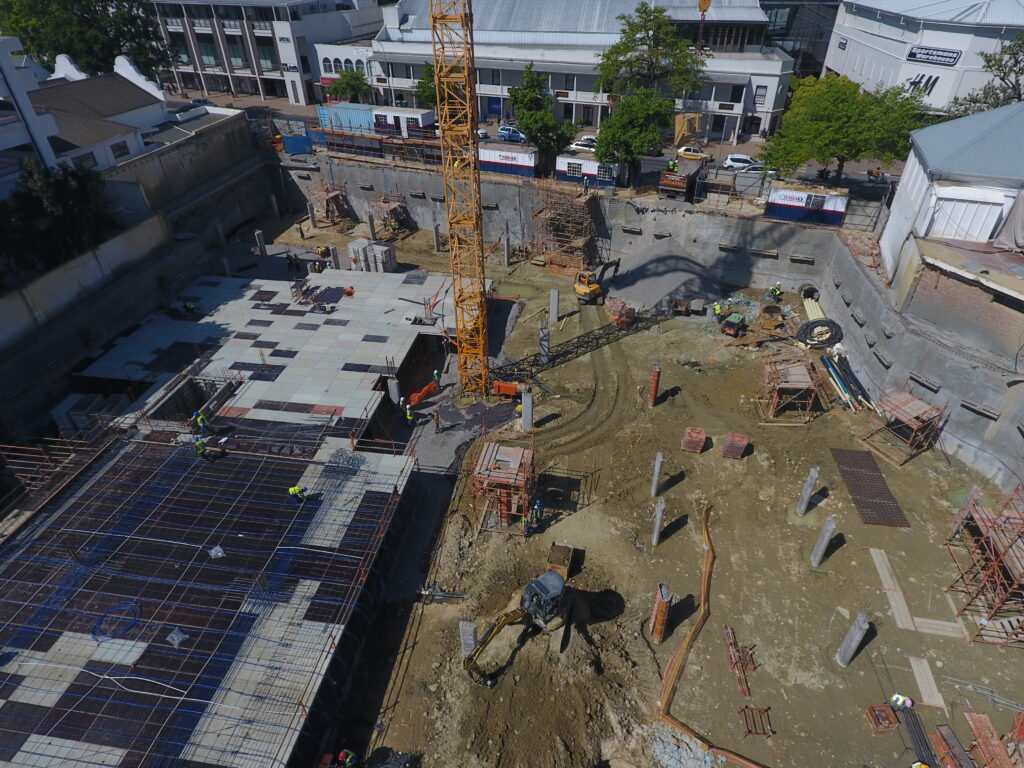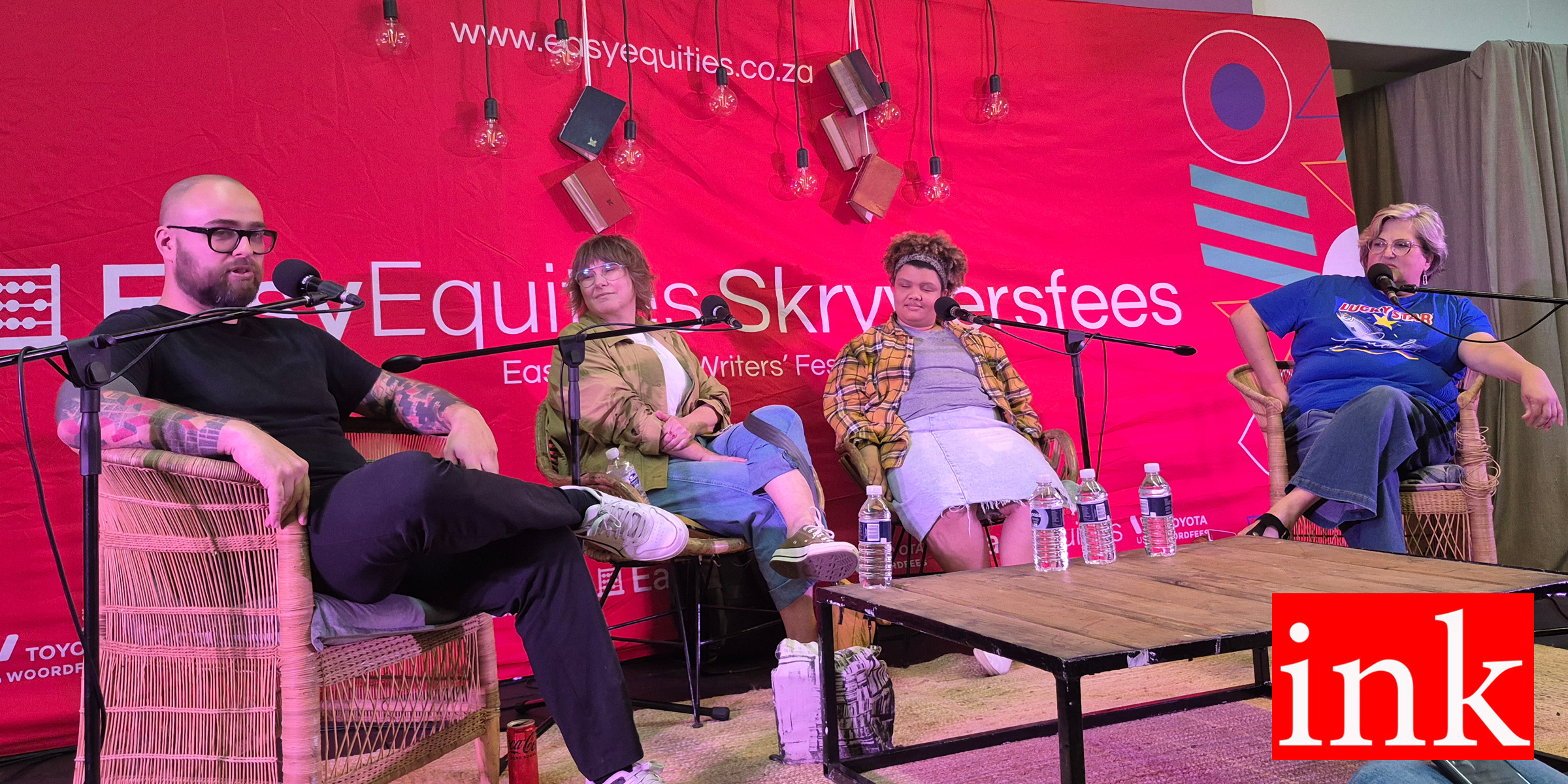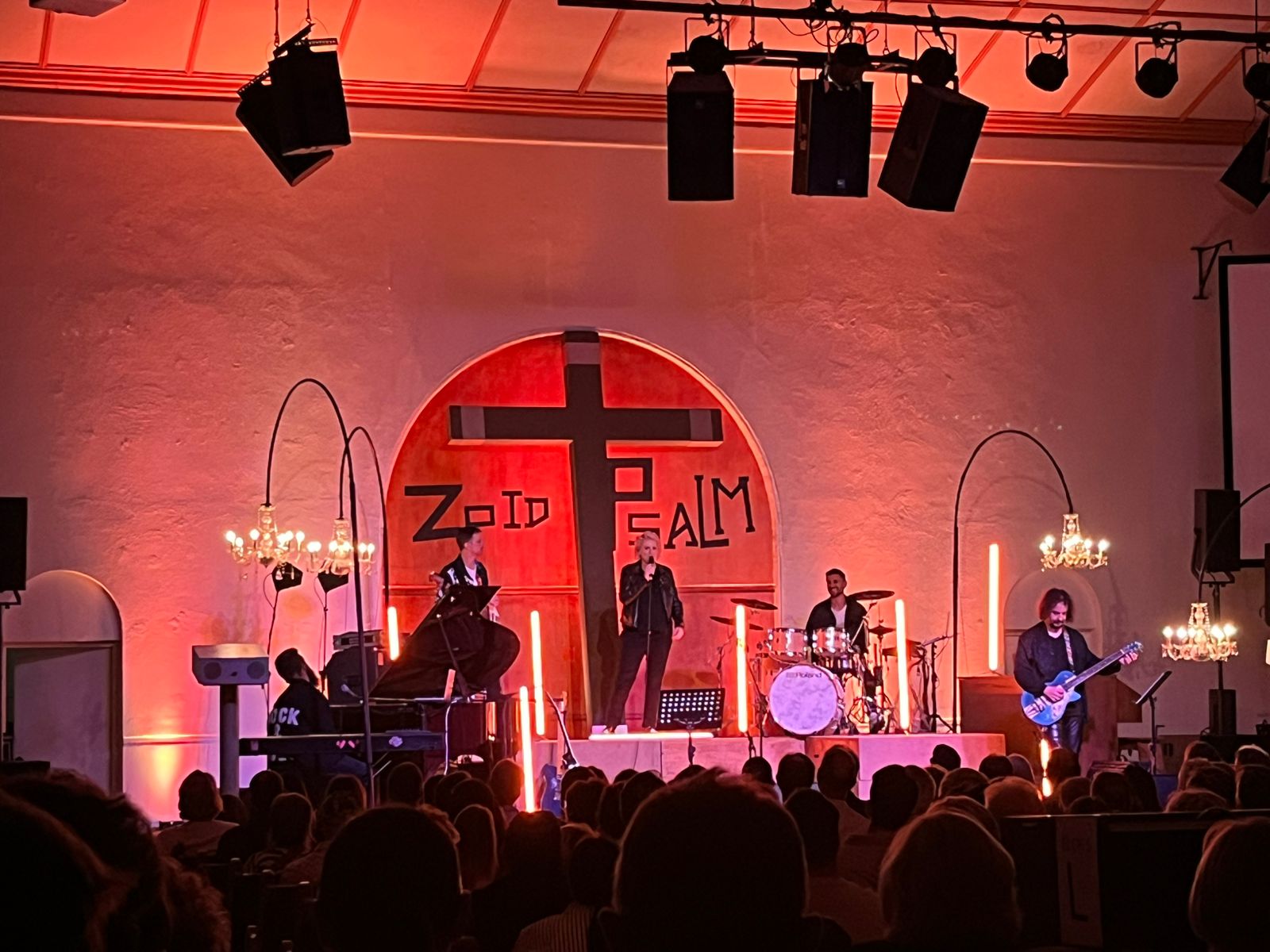BY TIAAN BOOYENS
After years of rumours and a hard blow to club culture during the first national lockdown, a new development project brought the last ever rounds to the Drostdy Square on Bird Street.
Due to the lockdown regulations and complete restrictions on social gatherings at the time, many prominent nightclubs and bars like Terrace, Tin Roof, Stones and Catwalk were forced to close. Soon afterwards, Cubaña, the social café and eatery on the corner of The Square and next to the Drostdy Theatre, also made way for yet another chain restaurant.
Today, many Maties have likely been in the unfortunate situation of explaining to those not local to the Stellenbosch student nightlife that The Square, as it used to be, no longer exists. Students who want to “Uber tot De Lapa”, as artist Jan Bloukaas raps in his hit song “Stellenbosch”, will now find cranes and construction where their favourite spots used to be.
The Abacus Development Company (ADC), a property developer specialising in luxury apartments and retail developments, aims to see the Drostdy Square redeveloped into a fresh, new space for co-living by the end of the year. Co-living, according to David Ludditt, the chief executive officer of Abacus Development Company, is something that works well in Stellenbosch.
“It’s an environment for, I suppose, the Generation Z,” says Ludditt, whose company has done a lot of research into the needs and desires of their demographic.
“All the directors [and] all the shareholders of Abacus live in Stellenbosch, so we’ve got a heart for Stellenbosch. We want to protect our town and we want to develop the right things,” he adds.
ADC’s co-living projects in Stellenbosch, branded as MySpace residences, are “[spaces] where you can live, but also spaces within the greater environment that encompasses your community”.
The MySpace@Drostdy, the development where The Square used to be, will be one of these new co-living residences. On track to be completed by next year, the accommodation will offer laundry facilities, WiFi, access to communal study and entertainment areas, a deli, some vending spaces, a gym, and even a Netflix account—all included in the monthly rent, which Ludditt argues compares well against the more affordable alternatives that don’t offer as many advantages.

According to Ludditt, this all-encompassing “Abacus co-living concept” suits the younger Stellenbosch student as well as those who decide to stay in town after graduation as postgraduate students or young professionals.
ADC started with mainly retail-related projects like CapeGate Shopping Centre in the Northern Suburbs of Cape Town and the local Eikestad Mall, amongst other notable projects nationwide. The developer acquired Drostdy Square when buying the property rights for Eikestad Mall and some surrounding areas.
Some establishments previously housed by The Square, like Catwalk, have managed to secure new venues and are back in business elsewhere in Stellenbosch, and a number of new places have sprung up since the return of students. Centraal in Mill Square, arguably the most popular of the new additions to the student town’s nightlife scene, saw opportunity amidst the closing of The Square.
“I always knew that the [Drostdy Square development would be] something that would lower the number of offerings in town,” says Werner de Swardt, co-owner of Centraal. The plans for its redevelopment have been in the works for about a decade, and it happened to coincide closely with the opening of Centraal. According to De Swardt, Centraal’s success is proof that the nightlife in Stellenbosch will find ways to survive.
De Swardt, who is a former Matie from a generation before The Square even became the hub of student nightlife in Stellenbosch, has seen different eras come and go over the years. He says that some years Stellenbosch has had an abundance of establishments, and other times students have had to travel to Cape Town to make up for a lack of local nightlife.
Sidumiso Vuma, a third-year BSc (Molecular Biology and Biotechnology) student, was part of the last Stellenbosch University first-year group to experience nightlife at The Square before the first national lockdown and the start of the redevelopment project.
“There’s some part of me that feels like something was taken away from me,” says Vuma. “I came to Stellenbosch, having a sister who had been here for three years, and you could hear the stories that came out of it, and it was one thing that I was actually looking forward to.
“As much as it would have been great to go out on a certain night in The Square, now that it’s actually being used for something that is going to benefit the youth, I do believe that it might be a better path to take.”

When asked about the alternative venues in town that have opened since The Square’s closing, Vuma commented that the limited options of new establishments, like Centraal, are strained to accommodate larger numbers.
“I think the wait is definitely worth it,” is De Swardt’s response to the usually daunting line outside Centraal. The current renovations will mean that Centraal could potentially almost double their current number of guests. Alongside more moderate COVID-19 regulations, De Swardt is optimistic that it would also mean less of a wait outside.
“Stellenbosch is in for a fantastic time. There are a few golden years in store for Stellenbosch,” says De Swardt. “The campus will grow; the calibre of students will always improve and nightlife will bloom. I have no doubt that there is a wonderful time for kuier and nightlife for Stellenbosch and for Maties.”
De Swardt says that the town and its nightlife will blossom after two years of lockdowns, which he admits are a big part of students’ youth today. “Post [COVID-19], I predict that there will be a boom, a rejuvenation when it comes to exuberance and jollity and cheerfulness and finding enjoyment; and I think young people deserve it.”



